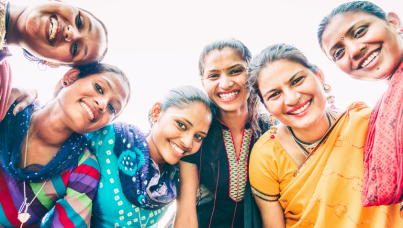

Ipsos Global Study Reveals Strong Nostalgia Worldwide
Ipsos, one of the world’s leading market research companies, today announced the findings of its latest 30-country study, Is Life Getting Better? Conducted midway through the decade and a quarter of the way into the 21st century, the study explores how people feel about life today compared with 50 years ago.
Even though 72% of respondents across the 30 countries — including India — were born after 1975, nostalgia for the past is widespread. In India, in particular, more people say life was better in 1975 than it is in 2025.
Strong Nostalgia Despite No First-Hand Experience
The findings highlight a pronounced sense of nostalgia that is not rooted in personal lived experience but in the belief that the past was simpler, purer, and more harmonious. Ipsos interviewed 23,772 adults under the age of 75 between August 22 and September 5, 2025.
When asked to compare life today with that of 1975, many Indians referenced values and stories passed down through generations — often depicting earlier decades as more peaceful and community-oriented.
Environment, Happiness, and Quality of Life: Past Seen as Better
At least 44% of Indians believe the quality of the environment was better in 1975 than in 2025. Recent natural disasters — including landslides and floods — appear to have amplified perceptions that environmental conditions have deteriorated.
A similar pattern emerges when evaluating happiness: 41% of Indians feel people were happier in 1975. Respondents pointed to greater social bonding, fewer digital distractions, more family time, and a slower pace of life. While financial resources were limited then, many believe people still lived contentedly and shared more meaningful personal interactions.
Progress vs. Perception
India’s progress over the past five decades has been remarkable — from massive improvements in transportation, highways, airports, and modern amenities to its emergence as the world’s 4th-largest economy, poised to become the 3rd by 2030. Yet, when asked to choose between life today and life in 1975 across multiple attributes, many Indians continue to romanticize the past.
According to the survey, more Indian citizens believe that streets were safer 50 years ago, and living standards are perceived to have been better in the past. People also felt less threatened by war or global conflict, and healthcare was considered more accessible or affordable during that time.
Education Shines as a Modern-Day Strength
One significant exception stands out: education. Indians overwhelmingly believe education is better today than it was 50 years ago. They cite greater availability of job-oriented, skill-based programs that prepare students for a modern workforce, as opposed to the more generalized, theory-heavy curricula of earlier decades.
“Despite 78% of surveyed Indians being born after 1975, nostalgia runs deep — 44% and 41% feel the environment and happiness were better then. Memories of close-knit families, cleaner surroundings, and simpler lives evoke warmth, even as India stands as the world’s fourth-largest economy. Today’s tech-driven lives bring convenience but also emotional distance and higher living costs. Yet, education emerges as a clear positive — expanding opportunities beyond traditional paths. The findings highlight a timeless truth: while progress drives pride, people often view the past through a softer, more sentimental lens — where life seemed simpler and happiness, easier,” stated Suresh Ramalingam, CEO, Ipsos India.
Global Findings
Across the 30-country study, a strong global drift toward nostalgia is unmistakable. When asked whether they would rather have been born in 1975 or in 2025, people opt for the past by nearly two to one. On average, 44% would prefer to have been born in 1975, compared with just 24% who favour today.
South Korea stands as the sole outlier, with more respondents choosing to be born in the present than 50 years ago. At the opposite end of the spectrum, France is the most nostalgic nation, with 57% preferring 1975. Belgium and Mexico (both 53%), along with Great Britain and New Zealand (both 52%), also show strong leanings toward the past.
A clear majority believe the world was a happier place in earlier decades. Fifty-five percent say their country was happier in 1975, compared with just 16% who feel that way about today. Yet this nostalgia is not driven by precise historical recall. Respondents tend to overestimate life expectancy in 1975 and underestimate how long people live today—even in a world where many can expect to reach 75 years of age or more.
Environmental concerns loom large. Across 26 of the 30 countries, majorities say the environment was in better condition in 1975, with the global average reaching 61%. People are also more likely to believe their country was safer and more insulated from conflict 50 years ago.
However, not all indicators tilt toward the past. A global majority (55%) believe healthcare is better today, reflecting advances in access, treatment, and medical outcomes. Perceptions of whether education has improved vary widely across countries.
Assessments of today’s standard of living vary sharply depending on where people live. In South Korea, 80% believe living standards are better now—an opinion shared by 70% in Singapore and 66% in Poland. In contrast, majorities in France (59%), Türkiye (52%), and Canada (52%) believe their standard of living was higher in 1975.
Generationally, Gen Z is the only cohort that shows a slight preference for being born in the 2020s—though the margin is extremely narrow. Even the youngest adults express a level of uncertainty about both the present and the future that underscores the global sentiment captured in this study.
Technical note: Ipsos interviewed a total of 23,772 adults aged 18 years and older in India, 18-74 in Canada, Republic of Ireland, Malaysia, South Africa, Türkiye, and the United States, 20-74 in Thailand, 21-74 in Indonesia and Singapore, and 16-74 in all other countries. Fieldwork dates: August 22 – September 5, 2025.
The sample consists of approximately 1,000 individuals each in Australia, Belgium, Brazil, Canada, France, Germany, Great Britain, Indonesia, Italy, Japan, Spain, Türkiye, and the U.S., and 500 individuals each in Argentina, Chile, Colombia, Hungary, Ireland, Malaysia, Mexico, the Netherlands, Peru, Poland, Romania, Singapore, South Africa, South Korea, Sweden, and Thailand. The sample in India consists of approximately 2,200 individuals, of whom approximately 1,800 were interviewed face-to-face and 400 were interviewed online.



